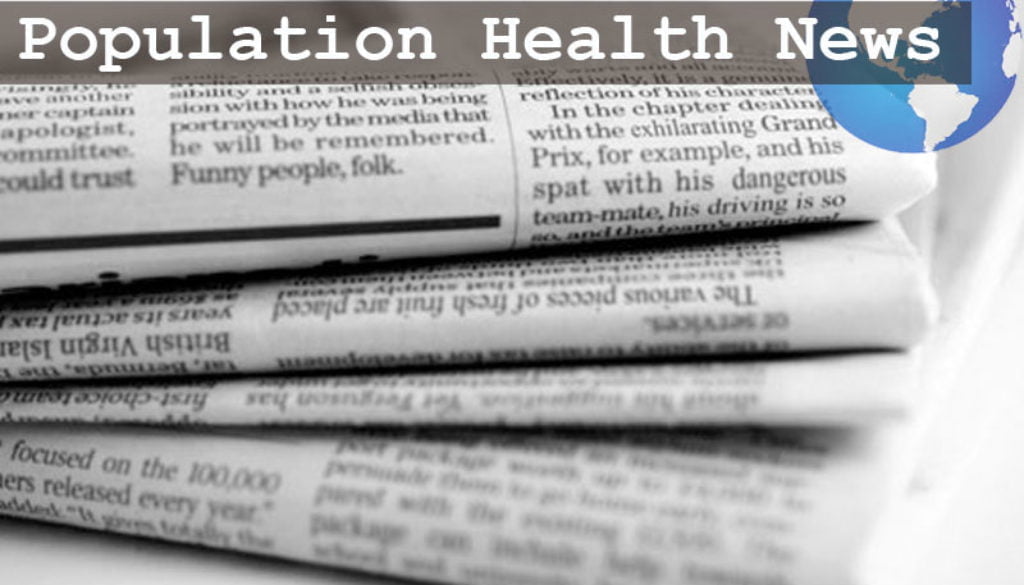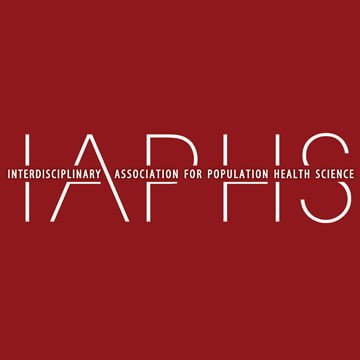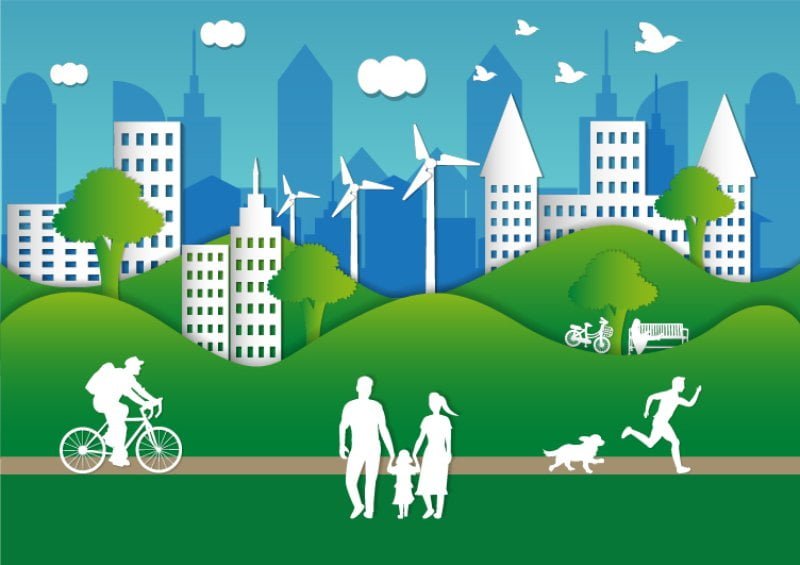Population Health News Roundup: August
JoAnne DyerIAPHS Members in the News
Sandro Galea in the American Journal of Epidemiology: Given the cumulative financial stressors occurring during the COVID-19 pandemic, an increase in the suicide rate in certain populations may be coming (July 22, 2020).
Jennifer Karas Montez, Jason Beckfield, Mark Hayward, Steven Woolf, and Anna Zajacova in The Milbank Quarterly: Liberal policies could add about 2 years in life expectancies–and conservative policies could make life expectancies two years shorter. (August 4, 2020)
Patricia Homan and Tyson Brown in The Journals of Gerontology: Structural racism means Black and Latinx adults face even higher risks of COVID-19 due to risk of exposure, weathering processes, and health care access and quality. (August 5, 2020)
Ana Diez Roux in The Milbank Quarterly: The COVID-19 pandemic may be producing “unanticipated opportunities for population health, by illuminating (in ways that were often unintended) how we can use our power as a society to change the way we live and to create systems and environments that promote health and health equity.” Diez Roux suggests that systems thinking is key. (August 18, 2020)
Ali Sewell and Hedy Lee in Ethnic and Racial Studies: “…living in lethally surveilled areas is linked to a greater risk of high blood pressure and obesity.” (July 22, 2020)
Disparities
Who dies of COVID-19 reflects discrimination against people with disabilities: Most COVID-19 deaths have been people in long-term care facilities. “That’s not accidental.” (WBUR, July 27, 2020)
The Arab American next-generation exception: Except for obesity and alcohol use, Arab Americans in California “remain healthy across generations,” unlike other immigrant groups, who tend to become less healthy across generations. (AJPH, July 20, 2020)
Disparities in coronavirus treatment in Brazil: In Rio De Janeiro, differences in coronavirus experiences and treatment are as stark as the income disparities between people who are wealthy and people in the favelas. (Washington Post, August 10, 2020)
Farm workers not well-protected from COVID-19: Several outbreaks have occurred among farm workers, who often live in cramped spaces, ride crowded buses, and work in groups. Some say the problem is the worker protections are voluntary, not mandatory. (Kaiser Health News, August 10, 2020)
Black babies more likely to survive with Black doctors: “The mortality rate of Black newborns shrunk by between 39% and 58% when Black physicians took charge of the birth…” White babies were not similarly affected by the doctor’s race. (CNN, August 18, 2020 from a study in PNAS, August 17, 2020.)
Place
Community health centers across America are endangered: Many community health centers received federal stimulus aid, but some still struggle to keep the lights on. People in vulnerable populations will be harmed the most. (Lerner Center for Public Health Promotion, Syracuse University, August 10, 2020)
In California’s suburban and agricultural areas, COVID-19 is surging: The death toll is especially high in the Central Valley, home to many who work in agriculture and food processing. (LA Times, August 12, 2020)
Puerto Rico’s health struggles reflect historical, colonial neglect: After Hurricane Maria, public health issues reflect “failed government protection and support,” resulting in a humanitarian crisis. (AJPH, August 20, 2020)
Concrete plants overrun one Texas county: 188 plants in Harris County, Texas, are filling the air with particulate matter, which is linked to premature deaths. (Rice University Kinder Institute for Urban Research, August 19, 2020)
Environmental Health & Justice
Strengthening diesel rules and climate policies would save lives: Diesel trucks emit PM2.5 and nitrogen oxides, which can contribute to lung illnesses and even cancer. But stricter policies could save lives. (Public Heath Post, July 29, 2020)
Systemic racism impacts our biological world, and vice versa: How we treat each other is “essentially structural violence against our natural world.” The authors also urge scientists to consider the income levels of the neighborhoods they study. (University of Washington News from a review paper in Science, August 13, 2020)
“Mossville” documentary narrates a tale of environmental injustice: Mossville, Louisiana is surrounded by 14 petrochemical plants, and toxic emissions and spills have made its (mostly Black) residents sick. Their story is told in this documentary film, Mossville: When Great Trees Fall (Earth Island Journal, July 31, 2020)
Mental Health
Worse mental and physical health outcomes in former NFL players of color: Poor physical and mental health outcomes, such as depression, anxiety, cognitive troubles, physical function, and pain were more likely to be reported by Black and other non-white former NFL players than by White players. (Harvard news from an Annals of Epidemiology study, August 10, 2020)
Mental health inequities for BIPOC are emerging, and worsening: Racial trauma, ancestral trauma, a lack of access to culturally appropriate mental health care, systemic racism, and more factors are harming mental health for many BIPOC. (BBC.com, August 11, 2020)
Bereavement causing a second wave of pandemic victims: Family members of people who die from COVID-19 may suffer the effects of grief, including traumatic stress, for years. People experiencing grief may suffer worse outcomes “because of lockdowns and social isolation during the pandemic.” (Kaiser Health News, August 12, 2020)
Programs & Policy
Better screening for homeless risk, thanks to the coronavirus: King County, Washington has changed how it determines who’s most vulnerable and in need of public housing—and this new test may be more equitable for Black people. (Seattle Times, August 4, 2020)
Hearing loss linked to poor Medicare understanding: Medicare beneficiaries with hearing loss showed less comprehension of their Medicare coverage, and one in five cited hearing loss as making it more difficult. (Journal of the American Geriatrics Society, August 3, 2020)
Intervention can echo through the generations: Children of parents who participated in an early childhood program had “fewer development delays in the first five years of life, fewer behavior problems….” and “better cognitive, academic and emotional maturity in the classroom.” (University of Washington News, June 8, 2020, from a JAMA Pediatrics paper)












All comments will be reviewed and posted if substantive and of general interest to IAPHS readers.